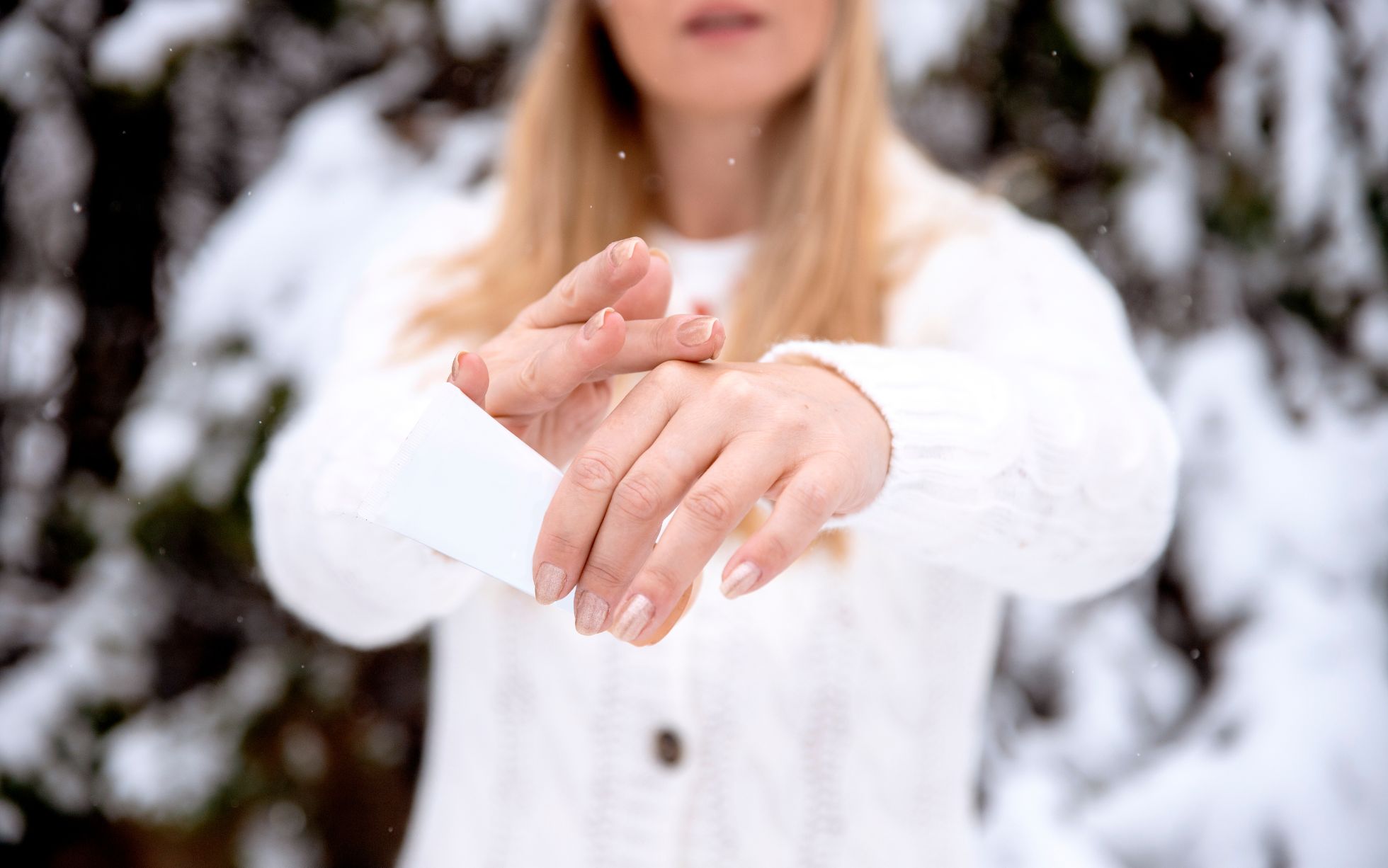Wear sunscreen
Even in winter you need sunscreen to avoid the sun's harmful rays. A broad-spectrum SPF 30 or higher should be applied daily. Just reapply every two hours, especially if you sweat.
Take care of your lips
In the cold, the lips may appear chapped and tingling. Use a lip balm with moisturizing ingredients such as natural coconut or jojoba oils, vitamin E, beeswax and shea butter. For an added bonus, try getting a lip sunscreen with SPF. Lips can also burn from the sun or during winter sports in snow that reflects solar radiation.
Stay hydrated
Since it's not hot outside and we don't sweat, often in winter we consume less water than we should, leading our skin to become dehydrated. A well-moisturized skin is also important in winter.
Also, sometimes the moisturizers and treatments we use in the summer months are not enough for the skin in the winter, especially in older ages. As the weather changes, the skin becomes drier and shows redness and peeling. This is due to the colder and drier weather which makes the skin more susceptible to moisture loss. Maybe you need to change your moisturizer. Moisturizing gels and lotions are commonly used in summer as they are lightweight and contain a high water content. Richer textures in creams and serums are better for cold, dry weather because they provide a stronger barrier to "lock" moisture into the skin.
Also, very hot showers and baths strip the natural oils from the skin, drying it out. For this, after the hot shower, it is advisable to apply a good moisturizing cream to the body, such as e.g. products with hyaluronic acid that will retain moisture in the skin.
Choose natural fabrics
If you have sensitive or intolerant skin, it is recommended to wear natural fabrics, such as wool, cotton, etc. Fabric allergies are mainly caused by synthetic ingredients that make fabrics waterproof and wrinkle-resistant. Even some natural fibers are treated with formaldehyde resins, so it's important to know the composition of the fabrics you wear.
A common dermatitis is that caused by an allergy to polyester, a very common fabric. Polyester fibers may cause skin irritation.
Contact allergy may also be caused by chemical additives used to treat or clean the fabric. This can include laundry detergent and dye used by textile manufacturers.
Use antioxidants
Incorporating products with antioxidants into your skin care routine is a good idea for any time of year. After summer, you may notice signs of damage to your skin such as freckles, dark spots, uneven skin tone, fine lines and wrinkles. These signs of damage are also caused in part by free radicals resulting from UV exposure.
Antioxidants are the body's defense mechanism against free radical damage and work by neutralizing free radical molecules. Those with the greatest benefit for the skin are vitamins C, E and B3 (niacinamide), because they have small molecular weights, which allow them to easily penetrate the surface of the skin, making topical application effective.
Invest in "winter" skin treatments
Winter is a great time of year for dermatological treatments. Peels and laser treatments are not recommended for the summer months, as there is a greater risk of unwanted post-inflammatory hyperpigmentation. Winter is an opportunity to do treatments that will beautify and strengthen the skin, such as skin scraping to stimulate new collagen and restore skin radiance. Likewise, now is the time to start treating unwanted hair with laser hair removal.
For photoaging skin, winter is suitable for treatments that target the signs of photoaging, such as antiaging laser or the peels.
Winter skin is often dull, so a professional facial every four weeks is recommended. That's how long our skin needs to go through the entire life cycle of skin cell growth. The regulars facial cleansing they will help you keep your skin clean, shiny and hydrated.
Consult your dermatologist for the right combination of treatments for healthy, firm and clear skin.


